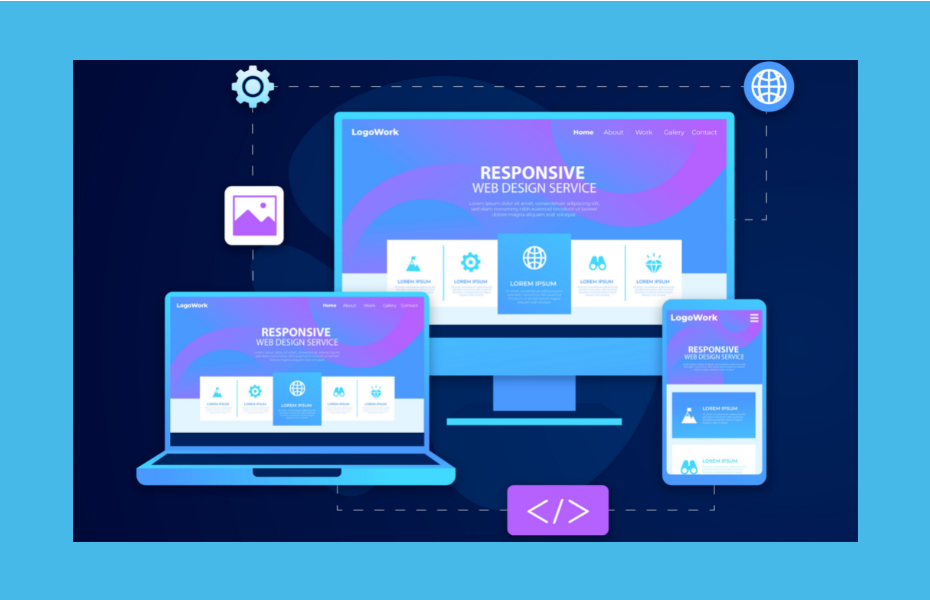In this article, we want you to know the main difference between a web app and a mobile app, or in other words, an application installed on your device and a website created as an application but which is not. If you are a company, do not miss anything that appears in the post, as it can greatly help you decide to develop an app for your business.
Table of Contents
Mobile App Vs Web App
It is quite common to think that when we talk about web applications and mobile applications, we are referring to the same concept, but this is not the case. In fact, although they are similar pieces of software, there are big difference between them. Each one has a different function and utility, therefore, depending on the project you want to develop, you will have to choose between one or the other.
Facility
This is one of the main difference between a web app and a mobile app. In the case of mobile applications, their installation is a program that is downloaded from a website or an application store and installed on the user’s mobile device.
For web applications, it is a tool that is hosted on a server and that users can access from the network through a browser. You could say that it is a website that has been adapted to the programming formats of smartphones or tablets.
Access
To access through a mobile application it is directly, through the app itself installed on the device, as mentioned above. Web applications are accessed through a web browser, which may have been through a web search or by directly writing the URL of the site.
Connection
In many mobile applications you can manage the service or functions without the need for an Internet connection. Although there are fewer and fewer apps that can be used without a network, it varies depending on the function or service it offers. On the contrary, in web applications, there is an obligation to have an Internet connection.
Updates
Mobile application updates must be authorized and downloaded by the user themselves. It is recommended to always have mobile applications updated, as they offer a better experience and correct errors. On the contrary, in the web application you do not have to update anything, it is done automatically.
Download and storage
The mobile application can be downloaded and installed from application stores, as well as from any website, and will occupy permanent space in the device’s storage. The web application does not need to be downloaded, you just need to open the URL and use it through the browser. This is another of the big difference between web app and mobile app and it divides users.
Accommodation
In mobile apps, hosting is the software or program itself, however, for web applications when we talk about hosting, a code base is needed, and it needs to be hosted on a server.
Programming language
In the mobile app, the programming language used is JavaScript. On the contrary, web applications usually use HTML, CSS, and JavaScript, a combination of several languages , to be able to adapt to different devices.
Design
In order to design a mobile application, the developer must create and differentiate the versions of operating systems they want to use.
In web applications, design development is standard, like any other web page.
Advantages of having a mobile application
The development of native apps for companies or brands is a trending market strategy and an innovative way to apply marketing to your company. The apps are dynamic, useful, easy to use and install and adapted to any device. They provide a series of advantages in their operation for users and the company:
- Much faster and easier access to the service or information without having to authenticate data at each access.
- Personal data, which a priori, are stored in a more secure way.
- Its use is complete and more practical than through a web app.
- If there is availability of specific functionalities that could be implemented in another way.
- Possibility of much better analyzing traffic, user actions or their profile when they access the app.
- Improved positioning in stores, apps and consequently on the internet.
As we can see, you can get a lot of juice out of mobile applications for companies, providing great benefits and advantages. Don’t you have an app for your business yet? Do you know that you can now create your own native application that is compatible with Android and iOS without having any programming knowledge? If not, then you can use Appstylo to build an app for your business, as you can develop iOS, Android, and Web Apps from a single dashboard.
Conclusion
In conclusion, understanding the difference between web apps and mobile apps is important for businesses. Web apps are accessed through a browser and don’t need to be downloaded, while mobile apps are installed directly on a device. Mobile apps can often work without an internet connection, whereas web apps always require one.
Updates for mobile apps need user approval, but web apps update automatically. Mobile apps take up storage space on a device, while web apps do not. The design and programming for each type differ, with mobile apps requiring different versions for various operating systems, and web apps being designed like regular websites.
Mobile apps offer several advantages for businesses. They provide quick and easy access to services or information, often store personal data more securely, and offer a complete and more practical user experience. Mobile apps also help businesses analyze user behaviour better and improve their online visibility.
For companies looking to develop an app, using a tool like Appstylo can simplify the process, allowing the creation of native apps for both Android and iOS without needing programming skills. This can be a valuable asset in modern marketing strategies and customer engagement.
